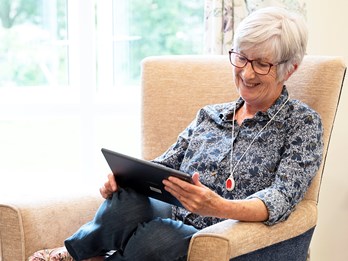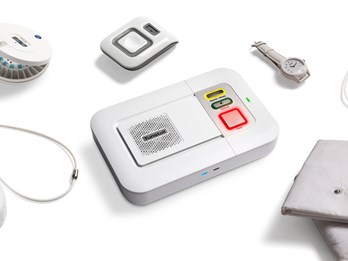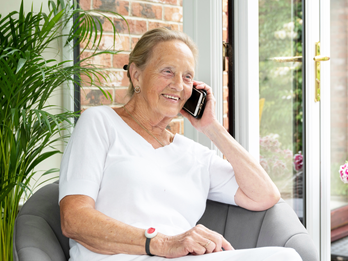How can technology help support people living with dementia?
Technology is a huge part of everyday life, and can be a great benefit to those living with dementia, especially technology systems such as telecare and telehealth. Hear more from Alzheimer's Society CEO, Kate Lee.
Technology and dementia: a smart way to support
Sep 26, 2022
Technology is a huge part of everyday life; from smart phones to smart speakers and a whole host of other devices which aim to make life easier, and many of these can be of great benefit for the 900,000 people living with dementia in the UK. For example, using a tablet to look at photographs, play quizzes or connect with friends and family. Less well known is a range of equipment best known as telecare. Telecare systems use sensors around the home to raise an alert with a specialist monitoring centre if they detect an event such as a fall, flood or fire in the home. These sensors can operate without the person with dementia having to actively use them, although some systems also allow users to easily call for help if they need it. An appropriate response can then be sent, whether to a carer in the home, a neighbour or nearby family member, or a response team or the emergency services.
Telecare enables systems to be tailored to the specific needs of the individual. For example, if an individual is in the habit of going to the bathroom during the night, bed sensors can be used that will alert a carer if the person they care for leaves their bed during the night but doesn’t return within a short period. This enables the person with dementia to maintain their usual routines and the carer to get a good night's sleep, safe in the knowledge that they will be alerted if they’re needed. For carers, introducing telecare into their caring situation can offer a range of benefits: improving the relationship with the person they care for, the opportunity to continue with activities they might otherwise have to give up, the ability to remain in paid employment in some cases, and more confidence about the safety and comfort of the person they care for.
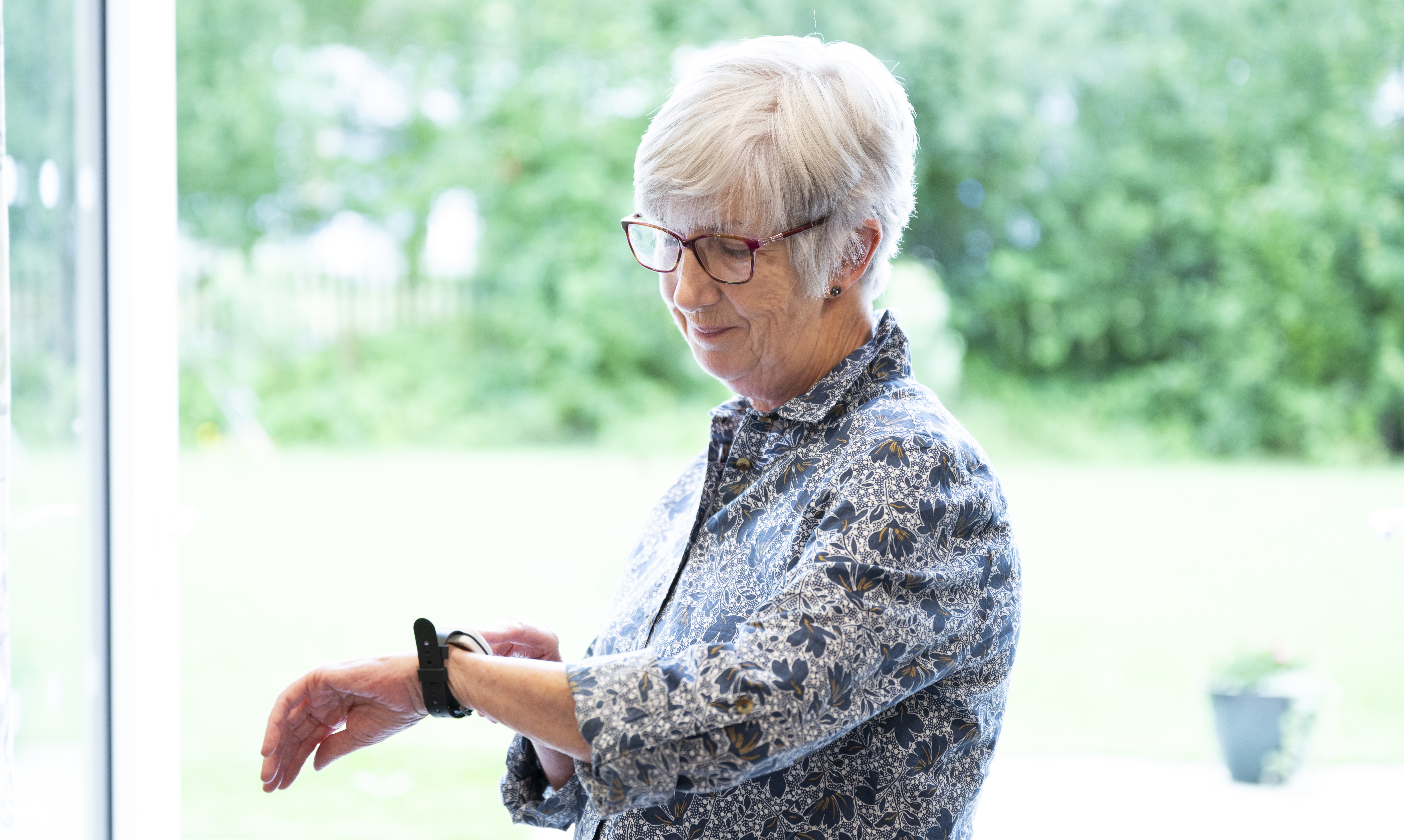

GPS technology can also be used away from the home, enabling people to continue with familiar activities such as walking to the local shop, but knowing they can press an SOS button to contact the monitoring centre if they find themselves unable to find their way home. These devices feature GPS location tracking, making it easy to find someone if needed.
Telehealth systems can also be a great support to people living with dementia. The prevalence of long term conditions such as heart failure or COPD increases with age, and using technology to regularly monitor vital signs and symptoms remotely can reduce the need to travel to appointments, which may distress some people. It can also enable early intervention, as deterioration in health can be identified at an early stage, avoiding the need for more complex care such as a hospital admission. Telehealth also makes it easier for clinicians to make informed decisions about patient care; people with dementia may not be able to communicate their symptoms, but the system provides objective data.
To gain maximum benefit, technology should be introduced as early as possible in the care of an individual with dementia, giving them time to become accustomed to its use. Wherever possible, people with dementia should be included in decisions about the technology they would like to have in their home, and it should always be viewed in the context of complementing an individual’s care and support, rather than used as a replacement for human interaction.
Technology can also support people living in grouped living environments, such as sheltered housing, extra care or residential care, helping staff to target care where and when it’s needed most and enabling a least restrictive approach. For example, enuresis sensors can reduce the need for regular night time checks, maintaining dignity, increasing sleep quality and enabling staff to provide more proactive care.
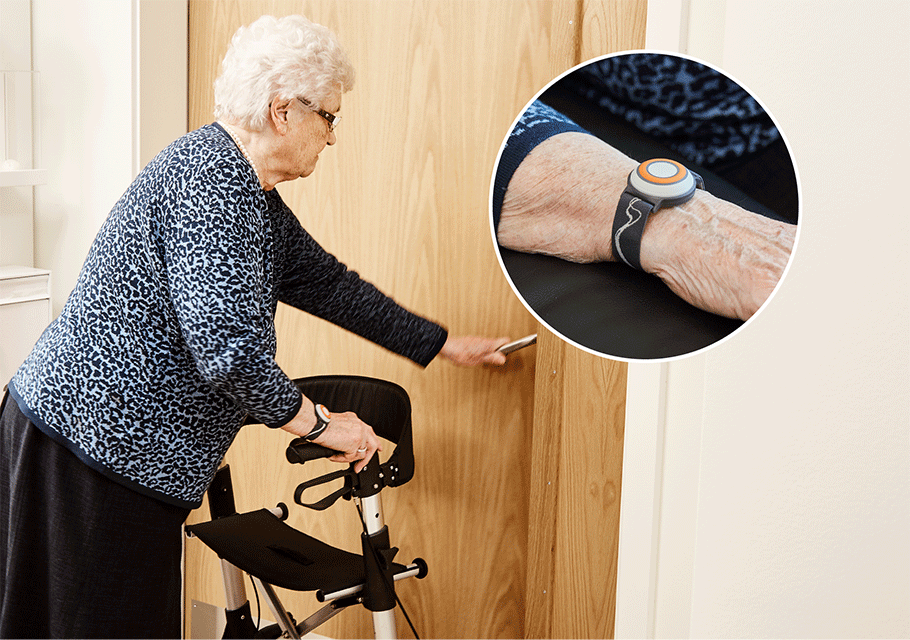
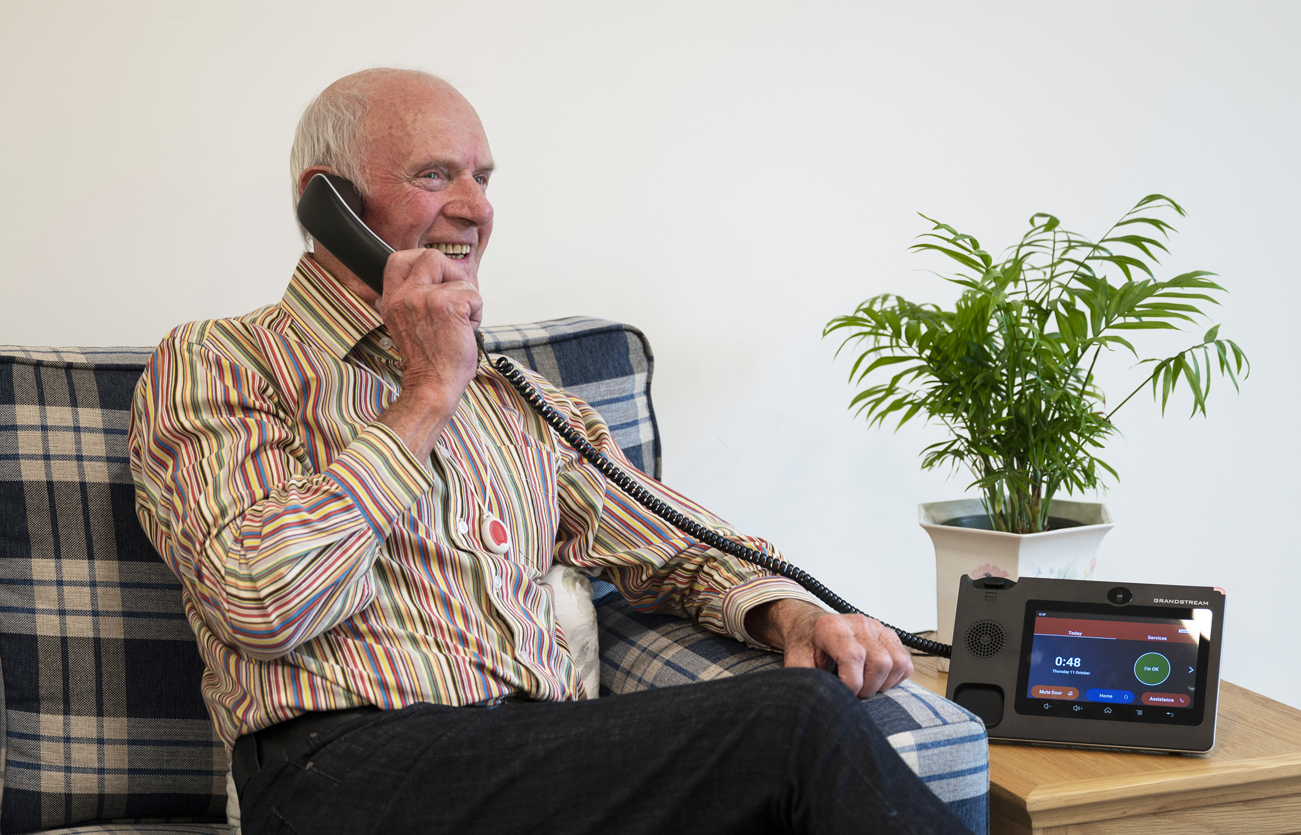
Unfortunately, there is a lack of awareness about available technologies, from people with dementia and their carers and family members, as well as many health and social care professionals. This is a missed opportunity to enhance the quality of life of both people living with dementia and their carers. The range of technology available is large, and growing, and more could be done to help people harness its power to enable people with dementia to remain independent, safe, and socially involved, helping them to live as well as possible and giving them greater choices about their care.

